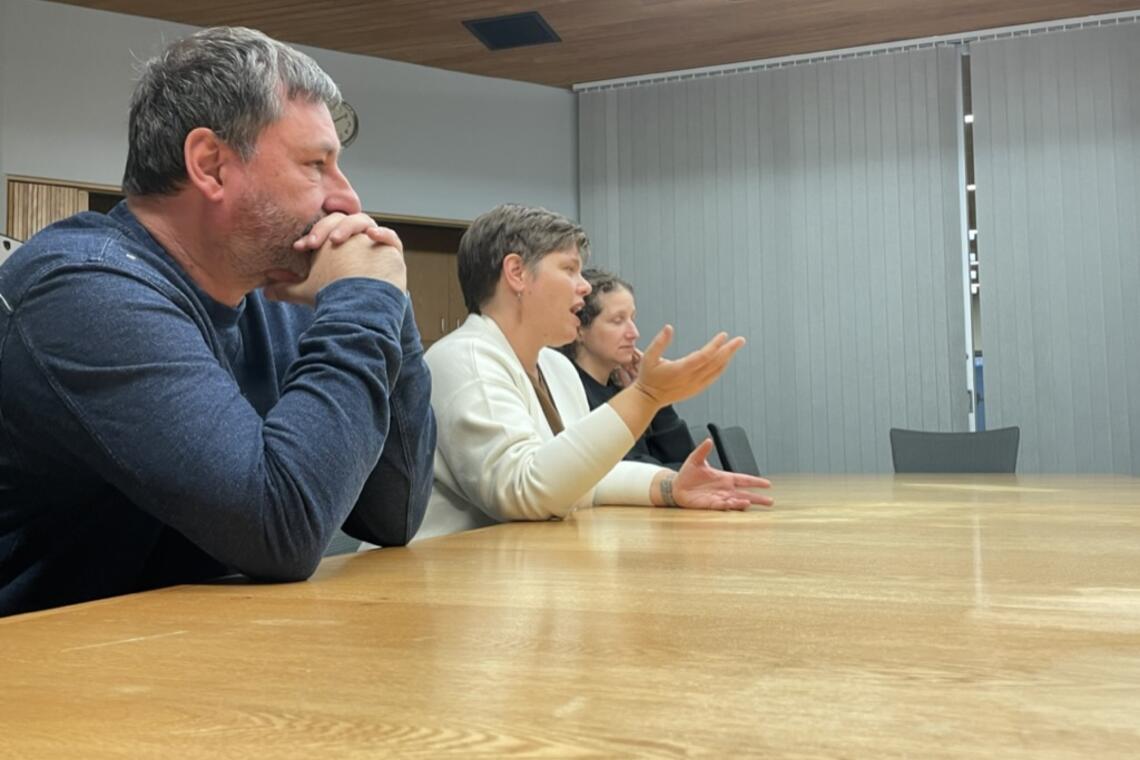What is the Energy Stories Lab?



What do we do?
In 2022, Dr. Perić was awarded a Canada Foundation for Innovation John Evans Leaders’ Fund grant to establish the Energy Stories Laboratory at the University of Calgary. Together with Dr. Leblanc and Dr. Dolgoy, they have created a Lab that uses the methodological tools of visual anthropology, visual arts and the community-based approaches of digital storytelling to document, collect and reveal energy stories from across Canada.
Our approach is feminist, care-based and collaborative. This means
- prioritizing voices that are left out of dominant narratives;
- regularly engaging with feminist, queer, anti-colonial, anti-racist thinkers, ideas and methods;
- caring for and always working on our relationships inside and outside the lab;
- making sure lab associates, research participants and community researchers drive and define our research and lab methods. We always aim to create a collaborative environment and the conditions for research participants and community researchers to feel empowered by their ideas and work;
- and regularly meeting to discuss and improve our approaches, especially when it comes to questions of the nature of digital data, digital access, ownership and inclusion.
In this, we are very inspired by other labs, such as the CLEAR Lab, the Access in the Making Lab, the Data + Feminism Lab, and the OBX Labs.
Emergent digital technologies and community-based methods are opening up new possibilities for accessing and sharing Canadian experiences. This is critical right now during a heightened era of polarization in public discourse, especially about Canadian energy futures.
Energy Stories Lab Directors
The Energy Stories Lab brings mobile digital audio and visual technology kits directly into communities so that communities can author and share their own stories of energy transition and innovation to the broader public. Communities receive training that enables the creation of their own engaging interactive stories in photography, film, audio, augmented reality and other media formats.
The lab aims to empower communities, and ultimately democratize the telling of our energy stories. We also work with museums and other institutions to bring community stories to a broader national or international audience.
Digital storytelling technologies have the power to close the distance between people by not only encouraging community identification and cultural exchange, but also challenging stereotypes (Walsh and High 1999, High, Ndejuru and O’Hare 2009). Digital storytelling allows us to better “share authority” between the researcher and communities (Frisch 2003). Digital technologies, however, are not only collaboration tools, but represent a novel way to communicate across the Canadian landscape.
How do we work?
The Energy Stories Lab is collaborative and transdisciplinary, combining ethnography with new forms of art and visualization, including augmented reality (AR), 3D object making, collective mapping and GIS. We highly value collaborative community-based digital storytelling methods, such as PhotoVoice, VideoVoice and also novel approaches to oral and life history.
All students affiliated with the lab are necessarily trained in at least two differing but complementary fields, building on the Faculty of Arts’ capacity for transdisciplinary training. Through Lab projects, trainees also experience working across different sectors: they work with our partners in academia, communities, museum institutions and governments, for-profits and not-for-profits.
